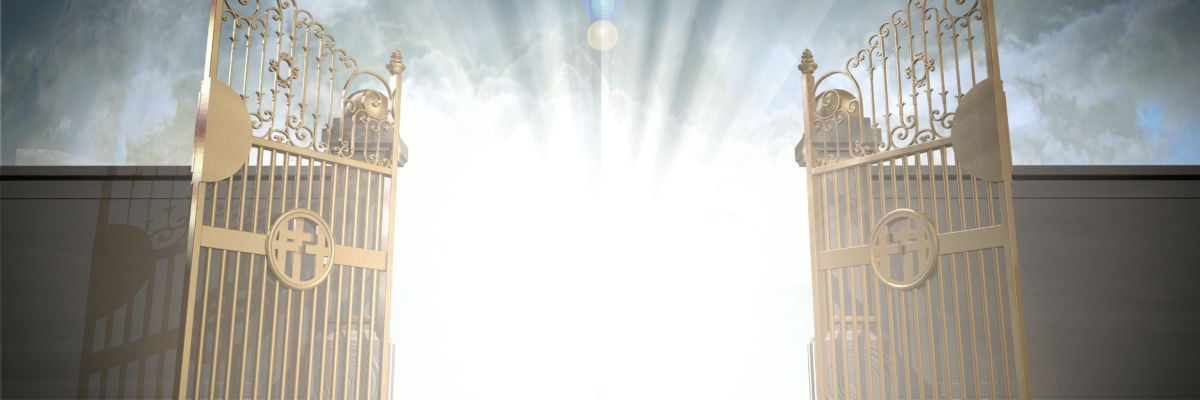
Episode 55: Year B – 2nd Sunday of Advent
In this episode of the Sunday Catholic Word, we focus on two details that pertain to apologetics. The first comes from the first reading, taken from Isa. 40:1-5, 9-11. Its apologetical significance comes to light when read in tandem with the Gospel reading, which is taken Mark 1:1-8. The apologetical topic that relates is Jesus’ divinity. The second detail comes from the second reading, taken from 2 Peter 3:8-14. The related topics there are predestination and Christian universalism.
Readings: Click Here
Looking for Sunday Catholic Word Merchandise? Look no further! Click Here
Hey everyone,
Welcome to The Sunday Catholic Word, a podcast where we reflect on the upcoming Sunday Mass readings and pick out the details that are relevant for explaining and defending our Catholic faith.
I’m Karlo Broussard, staff apologist and speaker for Catholic Answers, and the host for this podcast.
In this episode, we’re going to focus on two details that pertain to apologetics. The first comes from the first reading, taken from Isa. 40:1-5, 9-11. Its apologetical significance comes to light when read in tandem with the Gospel reading, which is taken Mark 1:1-8. The apologetical topic that relates is Jesus’ divinity. The second detail comes from the second reading, taken from 2 Peter 3:8-14. The related topics there are predestination and Christian universalism.
Let’s get started with the detail from the first reading. The verses that I want to highlight are verses 3 and 9:
3 A voice cries: “In the wilderness prepare the way of the LORD, make straight in the desert a highway for our God …. 9 lift up your voice with strength, O Jerusalem, herald of good tidings, lift it up, fear not; say to the cities of Judah, “Behold your God!
The thing to note here is that it speaks of “God”: a highway is made straight “for God,” and the voice says, “behold your God.”
Now, given that we’ve already talked about this prophecy in relation to Matthew’s appeal to it in Matthew 3:3, which was the episode 2, the episode for the second Sunday of Advent for Year A, I’m not going to dwell on it here. You can relisten to that episode to get the details.
But suffice to say that these details, when read in tandem with Mark’s quotation of Isaiah 3:3 found in the Gospel reading for this upcoming Sunday, reveal Mark’s belief in Jesus’ Divinity. Here’s the reasoning: If the voice prepares a way for God, and Mark identifies John the Baptist, who is preparing a way for Jesus, to be that voice, then it follows that Mark believes Jesus to be divine, just like Matthew. So, the first reading and the Gospel reading for this upcoming Second Sunday of Advent, Year B, give us an opportunity to reflect on Mark’s belief in the divinity of Jesus.
The next detail from this upcoming Sunday’s readings that has apologetical significance comes from the second reading, which is taken from 2 Peter 3:8-14. The key verse is verse 9: “The Lord does not delay his promise, as some regard ‘delay,’ but he is patient with you, not wishing that any should perish but that all should come to repentance.”
There are a few apologetical topics that this detail relates to.
First, it relates to the topic of predestination. Predestination is the theological doctrine that God elects/chooses to bestow upon some the grace of final perseverance in virtue of which those upon whom such a grace is bestowed go to heaven.
But the question arises, “What about those who end up in hell? Are they ‘predestined’ in the same manner as those predestined to heaven—that’s to say, positively willed/moved to reject God and thereby merit damnation?”
Here is where 2 Peter 3:9 comes into play. Given 2 Peter 3:9, we must say no. The Catechism of the Catholic Church teaches as much, quoting 2 Peter 3:9 for support:
God predestines no one to go to hell; for this, a willful turning away from God (a mortal sin) is necessary, and persistence in it until the end. In the Eucharistic liturgy and in the daily prayers of her faithful, the Church implores the mercy of God, who does not want “any to perish, but all to come to repentance” (1037).
Note the verb “predestines.” This refers to God’s positive election of some within this order of providence to receive a grace that moves the will to remain faithful to God until death and thereby attain final salvation. This is a positive willing on God’s part.
According to the Catechism, God doesn’t will damnation along these same lines. In other words, God doesn’t positively will that some within this order of providence choose against God until death and thereby attain eternal damnation. He’s not moving these people to damnation by causing them to sin. God can’t do this, metaphysically speaking, lest he fail to love himself, which is absurd. Rather, God permits some to fall into sin and remain in such sin until death.
Of course, such permission of damnation raises the question, “How does this jibe with God’s ‘desire that no man perish’?” There seems to be an incompatibility between the revelation that God desires none to be lost and the revelation that some are in fact lost.
If God desires all to be saved, and his will can’t be frustrated, then it would seem all must be saved, in which case no one would go to hell and the belief of Christian universalism would be true (the belief that all will be saved in the end). But most Christians reject such universalism.
So, do we have to give up on the doctrine of hell to affirm Peter’s statement in 2 Peter 3:9?
Perhaps we can begin to resolve this tension by drawing a parallel with sin. Take the statement, “God desires/wills that no one sin,” a statement that’s consistent not only with philosophical reasoning but also with divine revelation.
One way to interpret this would be to say that God “wills”—that’s to say, positively causes everyone to in fact (actually) persevere in the good and never turn away from it. Obviously, this is not what we mean, since not everyone is like the Blessed Virgin.
Another interpretation would be that God “wills”—that’s to say, creates or determines a certain order for human behavior insofar as we’re rational animals that sin would contravene or conflict with.
God has created us with a nature that serves as the measure for what’s good for us insofar as we’re human beings. Given that this order of good inscribed within our natures is constitutive of the nature that God has created us with, we can say that God “wills” what’s good for us insofar as we’re human beings.
Now, God has also created us with powers for sake of knowing this order of good and behaving in a way that’s consistent with it. We call these powers intellect and free will.
So, for any voluntary behavior that’s not consistent with, or conflicts with, this order of good, i.e., sin, we can say, “That’s contrary to God’s will.” Why? Because someone engaged in a human act that contradicts, or violates, God’s established design or order for a human act—namely, consistency with/conformity to what’s good for us as human beings.
On this interpretation, the statement “God desires/wills that no one sin” is in no tension with the fact that some people sin. The metaphysical reality is simply that some people use free will to contravene God’s established order or design for how humans ought to behave.
With this in mind, let’s come back to Peter’s statement in 2 Peter 3:9: “God desires no one to perish but that all should come to repentance.”
We can read Peter’s statement like that of our interpretation of the statement, “God desires no one to sin”—namely, God has “willed,” or ordained, that within this scheme of providence we have a certain order to the supernatural end of heaven (a condition of which is repentance), which the damned contravene when they end their lives in final impenitence. In this sense, we can accurately say “God wills no one to perish” and those who do perish constitute a state of affair “that’s contrary to God’s will.”
In other words, everyone is created by God with a supernatural (over and above nature) ordination to heaven and someone who dies in final impenitence would contravene such an order. That’s the metaphysical reality. Consequently, on this interpretation, the statement, “God desires no one to perish and come to repentance,” is not in tension with the revealed fact that some end up not repenting and perishing.
Given the above line of reasoning, we can conclude that Christians don’t have to give up on the doctrine of hell and embrace Christian universalism to affirm 2 Peter 3:9. There is a plausible explanation as to what Peter means without having to affirm that God ensures that all will be saved in fact.
Well, my friends, that does it for this episode of the Sunday Catholic Word. The readings for this upcoming Second Sunday of Advent, Year B, provide us with ample opportunity to prepare ourselves for apologetical discussions, especially when it comes to
- The early Christian belief in Jesus’ divinity,
- The belief that God doesn’t “predestine” any to hell, and
- How to meet a challenge of Christian universalism
As always, I want to thank you for subscribing to the podcast. And please be sure to tell your friends about it and invite them to subscribe as well at sundaycatholicword.com. You might also want to check out the other great podcasts in our Catholic Answers podcast network: Cy Kellet’s Catholic Answers Focus, Trent Horn’s The Counsel of Trent, Joe Heschmeyer’s Shameless Popery, and Jimmy Akin’s A Daily Defense, all of which can be found at catholic.com.
One last thing: if you’re interested in getting some cool mugs and stickers with my logo, “Mr. Sunday podcast,” go to shop.catholic.com.
I hope you have a blessed Second Sunday of Advent. Until next time, God Bless!



